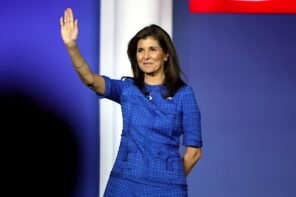Some events transcend the limitations of human language. There are indeed certain pains that can never be fully expressed, and select abstract moments of euphoria that cannot be linguistically reduced. For me, as a descendant of enslaved Africans, yesterday’s election of Senator Barack Obama as president of the United States fits this category.
It seems I was not alone. For over a year I have discussed the possibility of an Obama presidency from varying vantage points and, I would think, with relative levels of sophistication. With politically astute friends and family I have argued the virtues, values, vices, drawbacks and potential dilemmas of this very impressive black man from Chicago. Yet last night when my hope became a reality and my racially tempered optimism was given reason to momentarily rejoice, I could barely speak. My phone rang repeatedly and text messages were rapidly received and transmitted. But the ensuing conversations were little more than inchoate utterances often conveyed by cracked voices extending from tear-filled faces.
Little thought was given to the momentous economic obstacles that this nation currently faces. Nobody mentioned President-elect Obama’s next strategic move. Nor did anyone discuss the ways intellectually sophisticated racial discourse will be desperately needed to rebuff the recalcitrance of white supremacist logic that is sure to use this moment for its own unjust agenda. While these are all important topics that should soon be discussed, last night they seemed so inconsequential on an existential level in regards to the beauty of the moment.
For instance, my eighty-four-year-old grandfather, a retired newspaperman and World War II veteran, has lived his whole life in the state of North Carolina where his grandparents and parents picked tobacco as slaves and indebted sharecroppers. Even the telephone could not conceal the countenance of disbelief upon his brow as his measured voice repeated the mantra, “I never would have thought….I never would have thought.”
My mother, who the night of Martin Luther King’s assassination fielded celebratory calls as a telephone operator in Memphis, Tennessee, telephoned us to awake my four-year-old twins from their sleep. Through her sniffles and giggles, this loving grandmother and now proud American citizen, kept repeating, “you tell those babies Obama did it! Obama did it! Wake them up and let them know that “O’RockoBama” [my son’s pronunciation] really did win tonight!”
And I also received text messages from professional political and critical race theorists throughout the country that said little more than, “Can’t believe it,” “Wow,” and “I’m speechless.” One colleague from Harvard University simply yet profoundly surmised, “We cannot underestimate the power of what our kids will see (at least symbolically) as normal.”
To be sure, for a people who bear the burden of 244 years of slavery, another century of legalized apartheid and the continued vestiges of both, at least for a moment, the often-elusive goal of feeling fully part of America’s democratic project was realized as the beautiful brown faces of Barack, Michelle, Malia and Sasha walked hand-in-hand upon the national stage. And one had the feeling that the human dignity and personality of America’s darker-hued sons and daughters who have done so much to shape this nation was finally being affirmed in the highest institutional form possible. This moment could not be obscured by over analysis. Neither should it have been negated by punditry and pontification. Rather, it was just felt and enjoyed. Just like the black Baptist tradition taught me, “Sometimes you can’t say a word, you’ve just got to wave your hand…” And, fortunately, that says it all!




